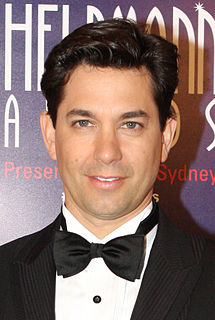A Quote by Drew Barrymore
Families in real life don't tend to resolve things neatly.
Related Quotes
If you work hard in real life, people tend to get in your way - either from inertia or prejudice - and they stop you achieving things. It's the worst thing about real life compared with sports, where you generally get what you deserve: if you're the fastest guy, you win; there are no other games being played.
Life on the road is very different from a normal, day to day life, and sometimes that surrealistic existence can have an effect on you, you tend to forget that's not really how things are supposed to be. But there comes a point where you have to pace yourself and find a place in your mind where you can be real.
One thing is all things. To resolve one matter, one must resolve all matters. Changing one thing changes all things. Once I made the decision to sow rice in the fall, I found that I could also stop transplanting, and plowing, and applying chemical fertilizers, and preparing compost, and spraying pesticides.
I tend to avoid melodrama. I try to create very realistic settings and very realistic experiences and realistic responses to these experiences. Melodrama is the use of really big events that may or may not happen in real life - certainly they do, but they're not events that are common to most people. Most of the things that happen in my novels are things that could happen to people in real life.




































